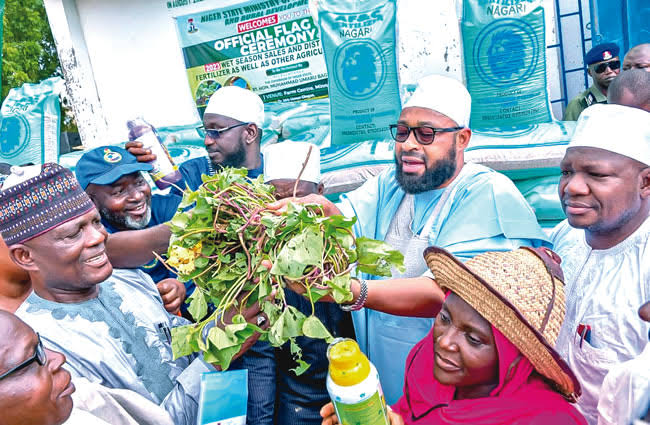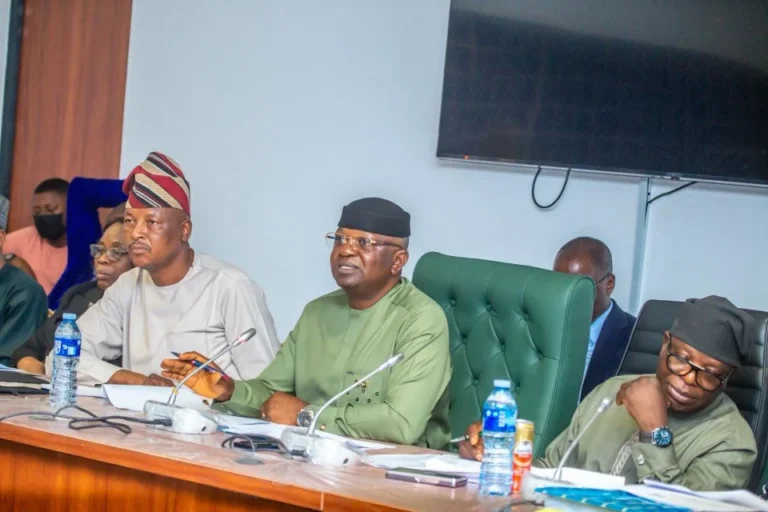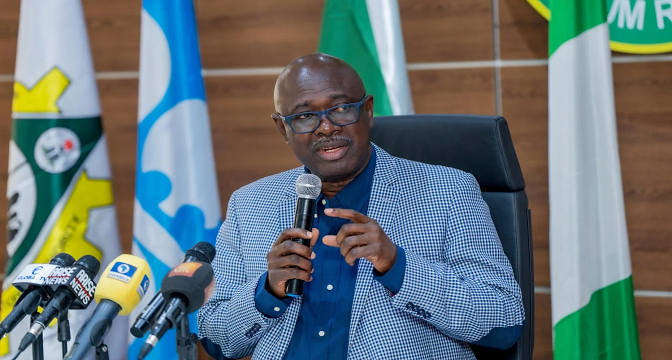
Nigeria’s agricultural sector has faced significant challenges due to erratic rainfall patterns, resulting in the underutilization of vast arable land and jeopardizing food security. In response to this issue, President Bola Ahmed Tinubu GCFR launched the Renewed Hope Action Plan in 2023, which emphasizes the adoption of modern irrigation techniques to enhance agricultural sustainability and food security.
Central to this initiative is the Irrigate Nigeria Project, which was officially inaugurated in Gamawa LGA, Bauchi State, on March 1, 2025. This project operates on a public-private partnership (PPP) framework aimed at facilitating year-round farming, increasing productivity, and generating millions of jobs. Key participants in this endeavor include the Renewed Hope Infrastructure Development Fund (RHIDF), the National Agency for Science and Engineering Infrastructure (NASENI), and various private investors. Collectively, they are deploying advanced irrigation systems to reduce farmers’ reliance on rainfall.
In contrast to previous efforts, Irrigate Nigeria is characterized by its structured approach, transparency, and commercial viability. NASENI leads the development of technology-driven irrigation infrastructure, while RHIDF focuses on strategic funding and policy alignment. Private investors play a crucial role by providing necessary financial resources and technical know-how, ensuring the project’s operational effectiveness and sustainability.
The goal of the project is to irrigate one million hectares of farmland, creating five million jobs over the next five years and expanding Nigeria’s commercial agriculture sector. Farmers will gain access to modern irrigation technologies, enhanced seeds, fertilizers, and technical assistance, resulting in higher yields and more stable incomes.
See more: Many French Citizens Favor Reducing Meat Consumption while Emphasizing Quality.
Khalil Suleiman Halilu, the Executive Vice Chairman and CEO of NASENI, states that this initiative will empower farmers to grow multiple crops each year, thereby enhancing their income and increasing national food production. The sustainability of the project is built on four key components: a centralized irrigation system managed by NASENI, the provision of improved agricultural inputs, a viable operational model, and an affordable repayment system where farmers contribute a portion of their harvests to a strategic food reserve.
Irrigate Nigeria transcends a mere irrigation project; it signifies a move towards agricultural self-sufficiency. The solar-powered, automated irrigation systems will reduce dependence on unpredictable rainfall, while strategic market connections will ensure long-term sustainability. In contrast to previous government initiatives that faltered due to bureaucratic hurdles, this project incorporates the efficiency of the private sector, market-oriented strategies, and global best practices.
Beyond agricultural production, this initiative will create jobs, invigorate rural economies, and promote financial inclusion. Smallholder farmers will be brought into the formal economy, attracting investments in agribusiness and decreasing Nigeria’s reliance on imported staple foods. Furthermore, the project aims to reduce rural-urban migration, alleviate farmer-herder conflicts, and encourage organized land-use planning.
The success of Irrigate Nigeria relies on the unified commitment of government bodies, private sector participants, development organizations, and dedicated farmers. With ongoing investment, supportive policies, and collaborative execution, this initiative is poised to elevate Nigeria to a leading position in global agriculture.
As President Tinubu’s Irrigate Nigeria Project expands, all stakeholders within the agricultural value chain are invited to participate in this transformative movement.
The future of agriculture in Nigeria is no longer dependent on rainfall; it is strategically designed for success, driven by innovation, and ready to compete on a global scale. With the leadership of RHIDF, NASENI, and private investors, Nigeria’s food security and economic prospects are now securely managed.



